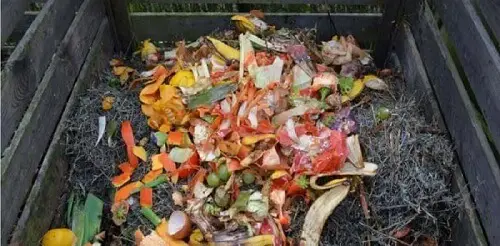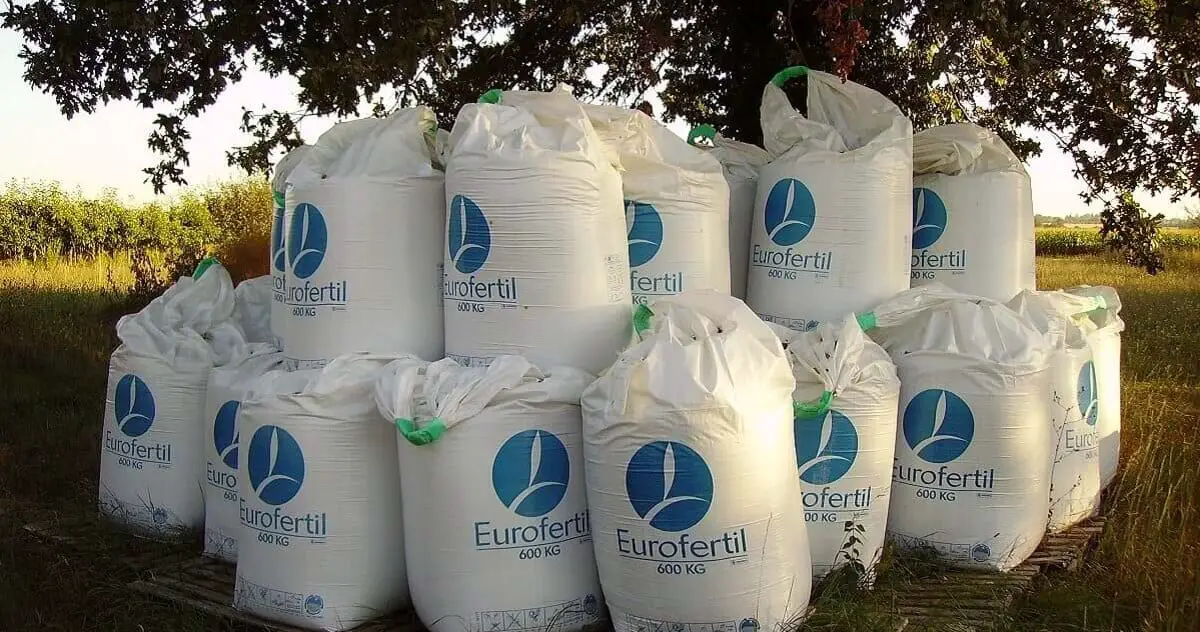Difference Between Fertilizer And Compost Benefits And What You Need To Know
Compost or Fertilizer?

Is there a difference between organic fertilizer and compost
Many first-time gardeners ask if compost and fertilizer the same thing.
The primary difference you should know between fertilizer and compost is that fertilizer directly feeds your plants, and compost will feed and condition your soil.
Compost is also an all-natural organic material that improves the soil's quality, tilth, and aeration. Over time compost will also increase the nutrient value of your soil.
Your soil will retain more of its moisture, improve the drainage and increase its bioactivity. The bioactivity in the ground (earthworms, soil microbes, bugs) slowly breakdown the decaying plant matter releasing the nutrients they contain.
Fertilizers, on the other hand, can be organic or synthetic. Fertilizers contain specific ratios of specific elements in exact proportions directly available for consumption from our plants.
If you are not an experienced gardener deciding to choose compost, fertilizer, or both to get a healthy garden can be confusing.
Keep reading for a detailed breakdown of what compost and fertilizer are and determine all the differences between the two.
What is the difference between compost and fertilizer?
What is compost and fertilizer?
Compost
compost as fertilizer?
Compost is a mixture of organic decomposed material from animals, fruits, leaves, vegetables, grasses, coffee grounds, and eggshells.
Organic matter is full of nutrients. Soil microbes, earthworms, and other insects in the soil slowly break down the compost and release the nutrients, making them available to your plants.
The quantity and ratio of nutrients in your compost are not known, making it more likely for certain deficiencies in crops to take place.
Compost does release nutrients into the soil but is not a fertilizer since the NPK ratios are not known. Therefore, it gets classified as a soil amendment. The goal of compost is to improve the health and quality of your soil.
While improving the health of your soil, compost also reduces the volume of fertilizer your garden will need later in the season.
It is best if you work compost into your soil at least annually. If you are growing a vegetable garden, you may want to work it in even more frequently.
Pros
- Creates nutrient-rich soil
- Aides in soil moisture retention
- Provides better soil aeration allowing the plants to have better root growth.
- Assists in disease resistance
- It helps to reduce and control weeds in your garden.
- Creates proper conditions for the beneficial microbes to grow and reproduce in your soil.
- Cheaper and more environmentally friendly, especially if you make your own.
- Promotes good growth of your plants.
- The natural health of your soil will stay at a high level. It will provide food for both your soil and plants instead of only feeding your plants.
Cons
- It takes time and labor to make your compost.
- After you have added it to the soil, it will also take some time to create beneficial effects in your soil.
- A compost pile can smell depending on what gets added to it.
- Physically laborious. You are going to have to till the compost into your soil.
- Large amount needed for success. Depending on the size of your gardening area, the amount of compost you need could be significant.
- You will need to have space where you can store and process it.
- You must make sure any of the plant remnants you add to your compost do not have any soil-borne pathogens. These can end up infesting your plants.
Fertilizer

With fertilizers, you can get them in organic and synthetic versions.
The organic versions get produced from strictly plant and animal sources. Therefore, they are better for the organisms in the soil compared to their synthetic counterpart.
Synthetic fertilizers get made from minerals, gasses, and inorganic waste materials. They are fast-acting but have shown to repel many of the beneficial microbes and earthworms.
While their fast-acting nature is great to fix a nutrient deficiency, you have to be careful not to apply too much. Synthetic fertilizers can quickly create high salt contents in your soil when used in large doses, making the ground toxic to your plants.
By law, fertilizers are required to use the NPK (Nitrogen, Phosphorus, and Potassium) ratio system to measure the contents they contain. Knowing the exact ratio allows you to select a fertilizer based directly on your plant's needs.
Pros
- Immediately adds nutrients to the soil.
- Targets plant’s specific needs
- Can add specific nutrients in ratios your plants need.
- Plants will grow very fast. You are maximizing your plant's growth and harvest.
- Provides essential nutrients that every soil needs, specifically nitrogen, phosphorus, potassium, and magnesium, available for immediate uptake from our plants.
- Provides macro and micro-nutrients
- Guarantees the exact amount of nutrients that are available in every bottle.
Cons
- Overload of nutrients and toxic levels of salts can occur in your soil.
- Can upset the soil's microbial balance.
- Generally chemically produced
- Chemicals can release into groundwater, adding to pollution.
- Synthetic fertilizers are not an environmentally friendly choice.
- It is an expensive solution.
- The high concentration of chemicals in fertilizer can disturb the symbiotic relationship of beneficial bacteria and worms in your soil, degrading your soil's long-term quality.
What is better, fertilizer or compost?
If you are trying to improve your soil's health, adding compost to your garden is your best option. Composts decomposed organic matter will improve the soil's aeration, microbial activity and slowly increasing the soil's nutrient value.
If you start to notice signs of a nutrient deficiency for your plants and need to correct it quickly, the better choice is for you to use a fertilizer. Fertilizer nutrients are immediately usable to the root system of your plants.
Nutrient deficiency can get correct overnight with fertilizer. However, with compost, you would need to wait several weeks to see the results.
Common Traits of Fertilizer and Compost
When appropriately used, compost and fertilizers work great together.
The compost helps give your soil better properties, and it will hold on to the nutrients better when you add fertilizer to it.
The organic matter helps keep your fertilizer's nutrients in the soil available to your plants instead of getting leached away.
By regularly adding compost to your soil, you will notice it becomes richer, darker in color, easier to work with it. In addition, it will have better aeration for your plants.
Healthy soil will also need fewer fertilizers added to it over your growing season.
Difference Between Compost And Fertilizer Summary
The big difference between the 2 is that compost feeds our soils, and fertilizers feed our plants.
Compost will improve the nutrient and composition of our soil, where fertilizer provides a quick source of food directly to our plants, providing them with the fastest growth.
When adding fertilizers, you should stick to organic versions. These do not discourage the chemistry and beneficial microbes and insects in your soil like the synthetic versions do.
Conclusion
While compost and fertilizer both have lots to offer to your garden, hopefully, now you know the primary difference between the two.
Suppose you need to provide your plants with some quick nutrients that need to be available immediately. In that case, you need to grab the bottle of fertilizer.
But if you are trying to improve the soil qualities while adding some nutrients, that will slowly get released. Working in some compost into your garden is the way for you to go.
Most gardens will use both methods. However, at the start of your growing season, working compost into your soil will be highly beneficial.
As your plants are growing, if you notice any nutrient deficiencies developing, at that point, you will begin adding fertilizers (preferably organic) to your garden.
It is best to use all organic fertilizers to limit any damage to the health of your soil. Synthetic fertilizers have been shown to repel earthworms and other beneficial microbes.
Using an organic fertilizer will ensure you are not undoing all your work to improve your soil with the compost.
Similar Articles
Biochar Fertilizer
Everything About Superphosphate Fertilizer
Advantages Biofertilizer What It Is
What You Should Know About Mushroom Compost